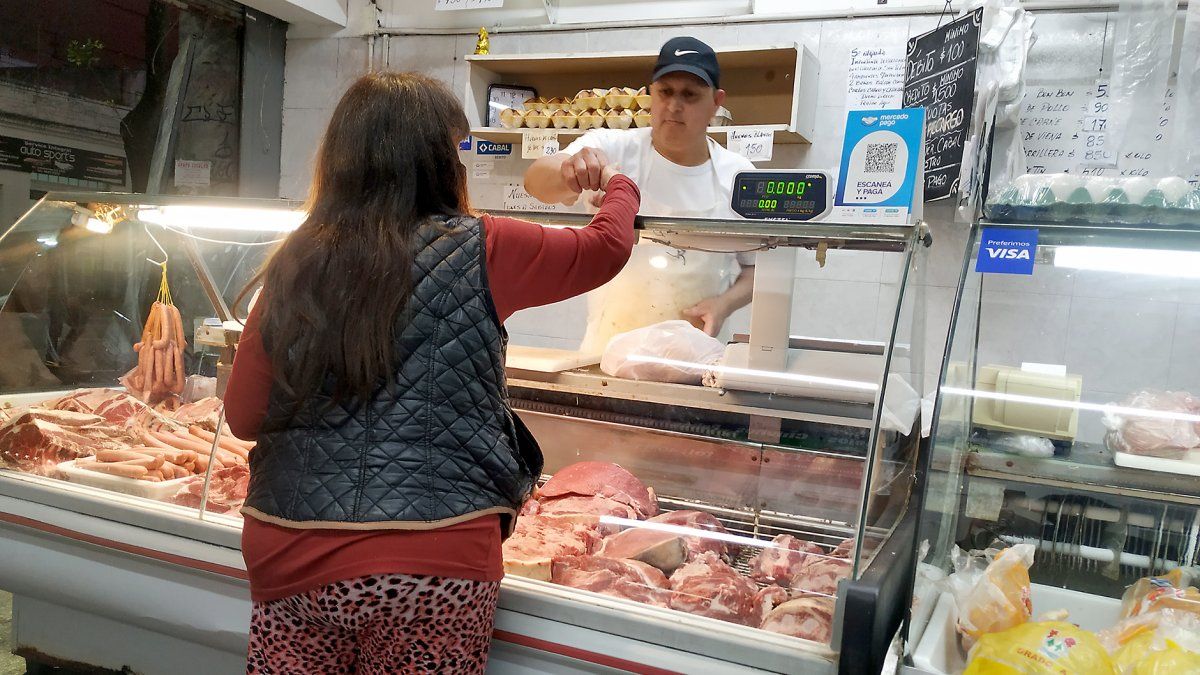In this sense, according to the first polls of consultants, the food held in the first days of July a similar dynamic to that observed in the last weeks of last month. And, although it is early to project, the minor increases in some product categories can help to “contain” increases in the basket average.
About, Camilo Tiscorniadirector of the consultancy C&T, told Ambit that in the first days of July you raise them in food “they bring a rhythm similar to that of the last week of June and grow 5.2% against the first week of June; the four-week average is 5%.”
“Meals out and takeout are the most dynamic. While the vegetables went down again and that contains. On the contrary, dairy products and fruits accelerated”remarked the economist, who in any case pointed out that it is still too early to know if it is a trend that will continue throughout July: “The month has just started, so we will see. But I imagine that the Government is going to try to control a lot to avoid strong increases”.
For its part, according to surveys and Food and Beverages of GCLit was observed in the first week of the month an increase of 0.2%, accelerating slightly by 0.1 pp compared to the previous week. “Average monthly inflation stands at 5.1% and accumulates a drop of 3.8 pp compared to the peak registered at the beginning of May”, they analyzed from the firm, and detailed: “This week the percentage of products with increases continued at the level of the previous week: 21%. It is equivalent to assuming that the total of the basket adjusts once a month”.
In the first week, according to LCG, “ready-to-go meals” rose 4.7%, followed by vegetables (2%). Meats climbed 0.7% and oils 0.3%. While fruits fell 0.5%.
Regarding the meatsone of the products with higher incidence inside the food basket, a strong rise is not expected throughout July. In this regard, as pointed out by the sector, it is possible to see a sharp jump in the prices of beef cuts “at the end of September or October”.
Mass consumption prices
Consumption Inflation Basic Basket Supermarket
According to the CESO survey, inflation in supermarkets was 2.3% in the last week
Mariano Fuchila
On the other hand, when analyzing the variation of other products that make up the mass consumption basket (in addition to food, cleaning, household and perfumery items, among others), a certain acceleration in their values was observed.
By case, according to Supermarket price monitor carried out by the Center for Economic and Social Studies Scalabrini Ortiz (CESO), a weekly variation of 2.3% (as of July 10) was registered, while the monthly comparison presented an increase of 6.1%.
The fresh food rose 2.4% weekly and 6% monthly; while dry foods climbed 2.2% and 6% monthly. Meanwhile, beverages increased 2.4% weekly and 5.4% monthly. On the other hand, household appliances rose 0.2% weekly (2.5% monthly); “Household” products, 1.5% (4.5%); and cleaning 1.8% weekly (5.5%).
In this scenario, the Government seeks to contain the rise in prices through different programs, to take pressure off inflation. In this regard, from the consultancy Ecolatina they analyzed: “The Government will continue aiming to keep the exchange rate gap containedunlock disbursements with the IMF and maximize the use of the currency swap with China and the commercial credit of importers in order to avoid disruptions in the exchange market”.
“Added to this, will continue to appeal to the Fair Prices program for mass consumption productsadded to an extension of the program for durable and semi-durable goods (The white goods, electro, cell phones, footwear, clothing, motorcycles and bicycles sectors will maintain the prices they had on May 31 frozen until August 15). In turn, it was agreed the renewal of the ‘Ahora 12’ program with the aim of ‘stimulating consumption and promote the national industry’, which will be valid until January 2024 and provides long-term financing facilities for products manufactured in the country, as long as the suppliers have signed the Fair Price agreements”, they concluded from the signing.
Source: Ambito




